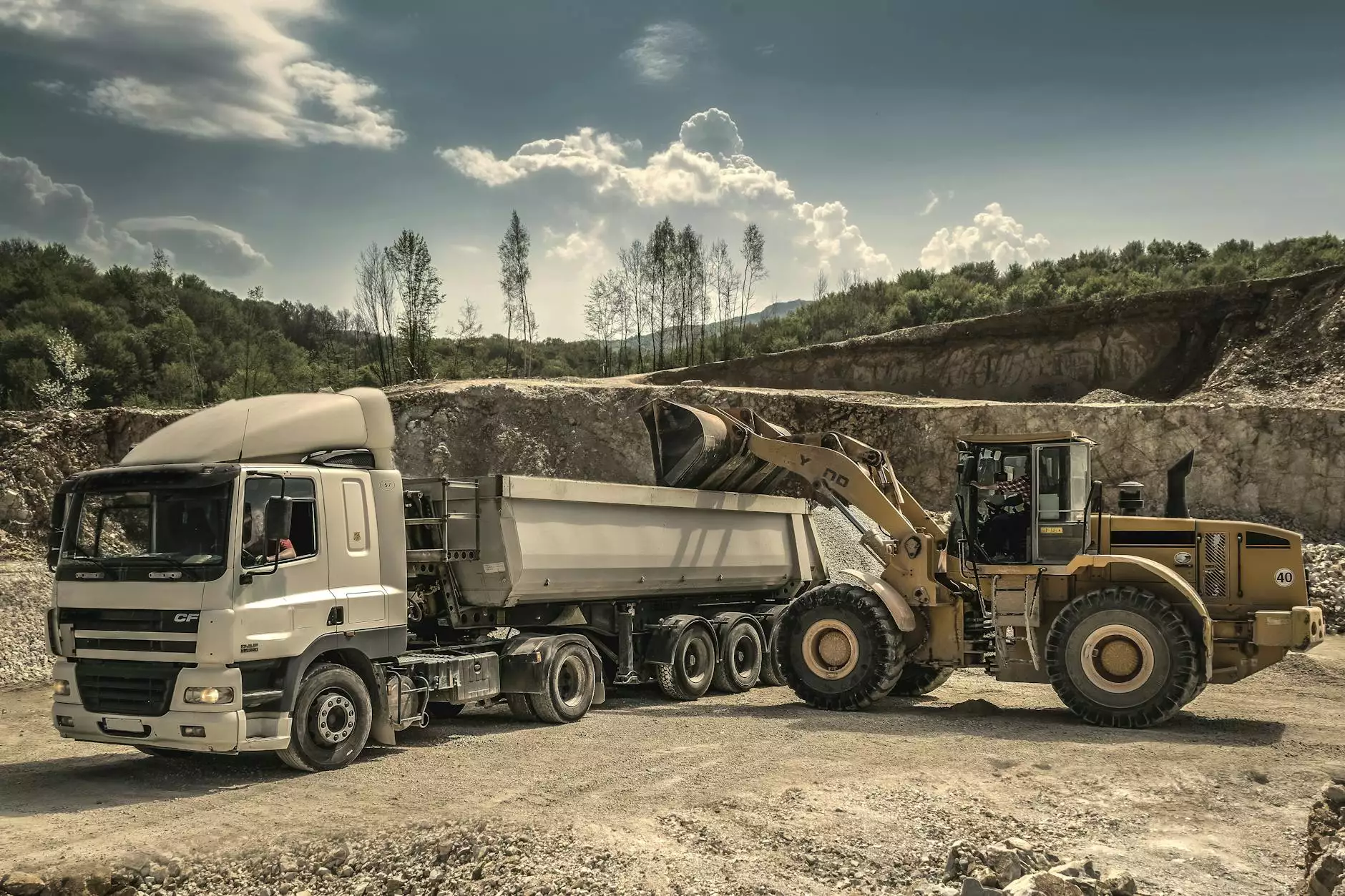Understanding Hydraulic Excavator Components: A Comprehensive Guide

In the realm of construction and heavy machinery, hydraulic excavator components play a pivotal role in ensuring optimal functionality and performance. This article delves deep into the intricate components of hydraulic excavators, unraveling how they contribute to the machine’s overall efficiency. We will also explore how these components relate to other fields such as automobile and motorcycle parts, proving their universal significance.
What are Hydraulic Excavators?
Hydraulic excavators are robust machines designed for various heavy lifting and digging tasks. Their operation relies on hydraulic systems that use pressurized fluid to enable powerful movements. These excavators are widely utilized in construction, mining, and landscaping. The hydraulic system is what sets them apart from traditional mechanical excavators, allowing for more controlled and powerful operations.
The Importance of Hydraulic Components
The efficiency and effectiveness of hydraulic excavators hinge on their hydraulic components. Each part plays a unique role in facilitating movement, traction, and power transfer. Understanding these components is essential for maintenance, repair, and improving the productivity of your hydraulic excavator.
Key Components of Hydraulic Excavators
- Hydraulic Pump: This is the heart of the hydraulic system. The hydraulic pump converts mechanical energy into hydraulic energy, providing the necessary pressure for other components to work.
- Hydraulic Cylinders: These cylindrical devices convert hydraulic energy into mechanical energy, facilitating the arm and bucket movements of the excavator.
- Hydraulic Fluid: The substance that transmits power within the hydraulic system. High-quality hydraulic fluid is crucial for preventing wear and ensuring smooth operation.
- Control Valves: These regulate the flow and pressure of the hydraulic fluid, enabling precise control over the excavator's movements.
- Filters: Filters ensure that the hydraulic fluid remains free from contaminants, protecting the system and prolonging its life.
- Hydraulic Reservoir: This is where the hydraulic fluid is stored. It also allows for heat dissipation and fluid expansion.
Detailed Overview of Hydraulic Excavator Components
1. Hydraulic Pump
The hydraulic pump is essential for generating the necessary hydraulic pressure needed to power the excavator's various functions. There are two main types of hydraulic pumps used in excavators:
- Gear Pumps: Known for their simplicity and reliability, gear pumps are commonly used in hydraulic systems where flow rates are consistent.
- Variable Displacement Pumps: These pumps can adjust the flow based on the demand, making them ideal for applications requiring variable forces and speeds.
Understanding the specific requirements of your hydraulic excavator will dictate the type of pump needed to achieve optimal performance.
2. Hydraulic Cylinders
Hydraulic cylinders transform hydraulic energy into mechanical energy, allowing for the movement of the boom, stick, and bucket. The primary types of hydraulic cylinders include:
- Single-acting Cylinders: These utilize hydraulic fluid to move the piston in one direction only, relying on gravity or some other force to return to the original position.
- Double-acting Cylinders: These can move in both directions, offering more power and control for heavy-duty applications.
Regular inspection and maintenance of hydraulic cylinders are crucial to prevent leaks and ensure smooth operation.
3. Hydraulic Fluid
Hydraulic fluid is the lifeblood of the hydraulic system. It not only transmits energy but also lubricates critical components and carries away heat. Impurities in hydraulic fluid can lead to system failure. Therefore, it's essential to choose the right type and maintain it regularly. Factors to consider when choosing hydraulic fluid include:
- Viscosity
- Thermal stability
- Oxidation resistance
Using high-quality hydraulic fluid is critical in prolonging the life of your excavator components and ensuring peak performance.
4. Control Valves
Control valves ensure the hydraulic fluid flows to the right components at the right time. They regulate pressure and flow to the hydraulic cylinders, enabling precise movements. The two main types are:
- Directional Control Valves: These control the path of the hydraulic fluid, enabling the operator to choose the direction of movement for different parts of the excavator.
- Pressure Control Valves: These maintain system pressure within a specified range, protecting components from damage due to excessive pressure.
Understanding how to work with the different types of control valves can significantly enhance the operational capabilities of the excavator.
5. Filters
Filters are crucial in maintaining hydraulic systems. They help keep the fluid clean by trapping contaminants that can cause damage to various components. Regularly checking and replacing filters can prevent costly repairs and downtime.
6. Hydraulic Reservoir
The hydraulic reservoir is where the hydraulic fluid is stored. It provides the necessary volume for the system to operate effectively and allows for fluid expansion and heat dissipation. Ensuring that the reservoir is clean and filled to the appropriate level is crucial for optimal performance.
Maintenance of Hydraulic Excavator Components
Proper maintenance of hydraulic excavator components is essential to ensure longevity and operational efficiency. Here are some best practices:
- Regular Inspections: Conduct thorough inspections of all hydraulic components on a scheduled basis.
- Fluid Checks: Regularly check the hydraulic fluid levels and quality. Change the fluid as recommended by the manufacturer.
- Filter Replacements: Replace filters at intervals dictated by usage or manufacturer guidance.
- Leak Checks: Inspect all hydraulic lines and connections for signs of leaks and cracks, addressing them immediately.
- Component Cleaning: Keep components clean to prevent dirt and debris from entering the hydraulic system.
Conclusion
Hydraulic excavator components are vital for the operation and efficiency of these powerful machines. Understanding their functions, maintenance needs, and the connection to other machinery parts—like those found in the Auto Parts & Supplies and Motorcycle Parts & Supplies categories at shophydraulicamerica.com—is critical for any operator or owner. The world of hydraulic systems is intricate yet fascinating, and mastering it can lead to enhanced productivity and reduced operational costs.
By prioritizing the maintenance and understanding the significance of each component, users can ensure their hydraulic excavators operate seamlessly, paving the way for greater achievements in construction, mining, and more.









